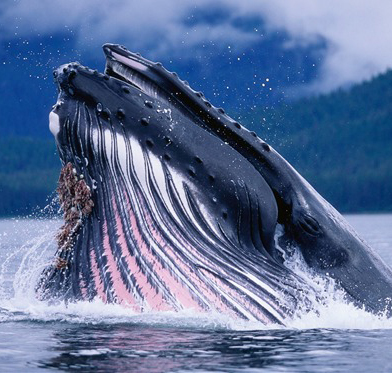HOW WE CONDUCT OUR RESEARCH
THE PEER REVIEW PROCESS
In all our research the JIP is committed to scientific objectivity through an independent peer review process. Placing peer reviewed publications in academically recognised journals ensures quality assurance of the output of both the JIP and its partners. We are committed to transparency and this process gives us the confidence that the analysis, interpretation and conclusions of the independent researchers have been thoroughly vetted. This also ensures that we reach the widest possible scientific audience.
THE RESEARCH
There are many organisations actively engaged in studying sound in the marine environment; this area of research is of growing interest and studies have already been conducted by military, academia and regulators. The JIP has the most extensive industry research programme in this field. This involves identifying, addressing and answering key questions around the impact of exploration and production activity, which have not been tackled systemically by the existing body of science. Working together with multi-national groups, experts and NGOs the JIP has already committed up to $55 million (US) to research.
Our research is divided into five categories, which are complementary and designed to allow the JIP to fully understand the issue and potential effects associated with underwater sound from E&P activities. The categories move progressively from those designed to understand how sound travels underwater, to the possible effects of sound on marine fauna’s physical and behavioural well-being, and finally on how sound can be controlled and potential impacts mitigated. The final category is designed to help keep the JIP at the cutting edge of science by developing new tools.

Sound Source Characterisation and Propagation
An essential first step of the JIP’s research is to better understand how sound propagates in the ocean. There are variety of factors including depth, temperature and salinity to name a few.
Find out more about the Sound Source Characterisation and Propagation Projects
Physical and physiological effects and hearing
The JIP aims to understand the potential effects of sound from offshore activity exploration and production activities on the physiology and hearing of different types of marine animals.
Find out more about the Physical and physiological effects and hearing Projects
Behavioural reactions and biological significant effects
The JIP aims to understand non-physical effects of sound from offshore activities on marine life behaviour over the course of their lives.
Find out more about the Behavioural reactions and biological significant effects Projects
Mitigation and monitoring
The JIP takes an active role in the development of effective monitoring and mitigation methods to reduce risk to marine life.
Find out more about the Mitigation and monitoring Projects
Research Tools
The JIP has researched and developed a range of research tools that not only improve our studies, but have also advanced general scientific knowledge of marine animals.
Find out more about the Research Tools Projects